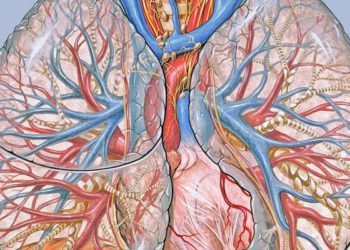Skipping breakfast associated with increased cardiovascular mortality
1. In this prospective cohort study based on data from the National Health and Nutrition Examination Survey III (1988 – 1994), people who self-reported never eating breakfast had almost double the cardiovascular mortality compared to those who always reported eating breakfast.
2. There was a non-significant trend towards increased all-cause mortality amongst those who self-reported never eating breakfast.
Evidence Rating Level: 1 (Excellent)
Study Rundown: Cardiovascular disease is a leading cause of mortality and morbidity in North America. There is a small amount of evidence that skipping breakfast is linked with several chronic diseases, but the impact on mortality is not clear. In this nationally representative prospective cohort study from the United States, self-reported ‘never’ eating breakfast was associated with an increased risk of cardiovascular mortality and a signal towards increased all-cause mortality compared with ‘always’ eating breakfast. Although ‘never’ eating breakfast was associated with obesity, dyslipidemia, former smoking, heavy drinking, lower income, physical inactivity, and being unmarried, the above elevated mortality risk remained after correcting for these factors.
Strengths of the study included using a validated survey, obtaining large amount of demographic information, using a nationally-representative group of people, and the long term follow up data. The main limitations of this study included the self-reported nature of breakfast intake (which introduces recall bias), lack of breakfast intake data during the decades of follow up, and the low numbers in the ‘never-breakfast’ group.
Click to read the study, published today in JACC
Click to read an accompanying editorial in JACC
Relevant Reading: Skipping Breakfast and Risk of Mortality from Cancer, Circulatory Diseases and All Causes: Findings from the Japan Collaborative Cohort Study
In-Depth [prospective cohort]: This was a prospective cohort study of 6550 nationally representative adults age 40-75 years old who participated in the National Health and Nutrition Examination Survey III between 1988 and 1994. Participants all completed a household interview followed by a physical examination at a medical center. Exclusion criteria included history of ongoing pregnancy, cardiovascular disease, cancer, or death within 1 year of survey. Median follow up was 18.8 years. All participants self-reported breakfast consumption as ‘never’, ‘rarely’, ‘some days’, or ‘always’. Data was also collected on demographics, other comorbidities, smoking and alcohol intake, as well as physical activity. There were 336 participants who never consumed breakfast (5.1%), 713 rarely (10.9%), 1639 some days (25.0%), and 3862 every day (59.0%). Over the study period (median follow up 18.8 years, maximum 23 years) there were 2318 deaths, 619 being from cardiovascular disease. Participants who ‘never’ ate breakfast were more likely to be non-hispanic black, former smokers, heavy drinkers, unmarried, physically inactive, with lower family income. They were also more likely to have obesity and dyslipidemia. After correcting for age, gender, and ethnicity alone, participants who ‘never’ ate breakfast had higher all-cause mortality (HR 1.75, 95% CI 1.46 – 2.10) and cardiovascular mortality (HR 2.58, 95% CI 1.64 – 4.06) compared with those who ‘always’ ate breakfast. In the fully adjusted model, the all-cause mortality HR was 1.19 (95% CI 0.99 – 1.42) and the cardiovascular mortality HR was 1.87 (95% CI 1.14 – 3.04).
Image: PD
©2019 2 Minute Medicine, Inc. All rights reserved. No works may be reproduced without expressed written consent from 2 Minute Medicine, Inc. Inquire about licensing here. No article should be construed as medical advice and is not intended as such by the authors or by 2 Minute Medicine, Inc.







